“No substitute for leadership by example”
Dra. Ma. Dominga B. Padilla, or “Minguita” as she is more popularly known, has been practicing medicine for more than 30 years. She has also been a health advocate and adviser
to both the DOH, congressmen and senators for the last 27 years.
Among her most notable contributions in medicine both here and abroad, and for which she has garnered multiple awards, is the Eye Bank Foundation of the Philippines, a humanitarian NGO that has made corneal transplants accessible to thousands of blind Filipinos from all walks of life, nationwide, since 1995.
Until October 2021 when decided to run for the Senate, Minguita was the president of the Eye Bank Foundation and president of the Association of Eye Banks in Asia. She was also a clinical associate professor at the UP college of medicine-Philippine General Hospital, rendering her service without compensation.
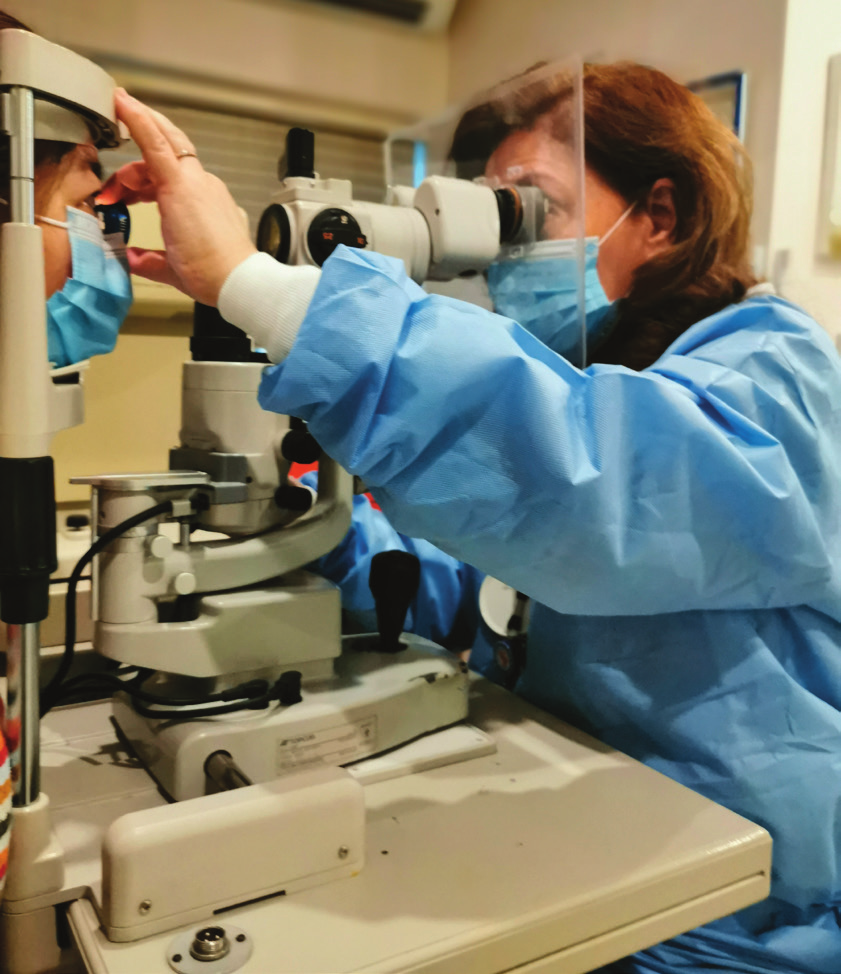

Dra. Ma. Dominga Cecilia B. Padilla
Education:
- Doctor of Medicine, University of the Philippines, April 1985 (Outstanding graduate in Academics and Leadership, top 10)
- Bachelor of Science in Zoology, UP Diliman, April 1981 (Cum laude)
She is also an eye surgeon in St. Luke’s
Medical Center. She was also among those who actively lobbied for the passage of the Universal healthcare Act of 2019.
She was a spokesperson of the UHC Study group of the UP Manila in the three years leading to the actual passage of the UHC Act.
Minguita served as head executive staff of Philhealth from March 31, 2015 to June 30, 2016.
In that capacity, she was able to help effect reforms to improve efficiency of PHIC service as well as to better protect the welfare of patients and the corporation.
In her career, Dra. Padilla felt a strong calling to do more for her country. The pandemic strengthened that urge to serve. Hence, her bid for the Senate.
What will be your priority agenda if you get to the Senate?
My priority agenda, if given the chance to sit as senator, will have to be addresing the many ills plaguing our healthcare delivery system.
Minguita’s website (minguitapadilla.com) lists 12 priority agenda items:
- Ensure optimum response to the COVID pandemic and ensuring the country is better prepared for coming pandemics;
- Address the systemic problems inside PhilHealth;
- Realize the the proper implementation of the Universal Healthcare Act;
- Address the runaway corruption in many government agencies;
5. Address the supply chain management problem of medicines and medical supplies;
6. Have a tough law against those who deliberately spread fake news that is damaging to public welfare
7. Look after the welfare of healthcare workers;
8. Address the growing mental health issues, especially of the youth, particularly in connection with the dangers of internet use. Give them the necessary skills and knowledge to protect them from the ills – Bigyang kalinga ang mga kabataan ukol sa Mental Health;
9. Ensure full implementation of our Organ Donation Act;
10. Look after the welfare of our farmers and fisherfolk so that we have economic security and we have food;
11. Enact laws that will help improve our climate change resiliency and protect our environment;
12. Protect our sovereignty in the West Philippine Sea.
Seven of these are directly related to health. The issue of climate change and environmental protection are also related to health, albeit indirectly.
But if one were to ask me which of the 12 priorities I would address first, it would have to be the Philippine Health Insurance Corp. (Philhealth or PHIC) and the systemic problems that have plagued it for many years.
A sound and efficient national health insurance system is necessary for Universal Healthcare (UHC) to happen.
The same is also necessary for us to address the present pandemic and those yet to come.
What do you mean by systemic problems of Philhealth?
A lot…. A piece of mine entitled “The Philhealth Conundrum” was published in the PDI last Dec. 31, 2021. I documented some of these problems.
There is the porous and fragmented information technology system that allows anomalies to thrive and which is also the cause for the lack of consistency of data of hospitals and Philhealth as far as payment of claims is concerned.
The current system also makes it difficult to keep track of fraud. Hence its like mano-mano. How can one have a properly functioning and responsive national health insurance system if it’s information technology system is fragmented? Impossible.
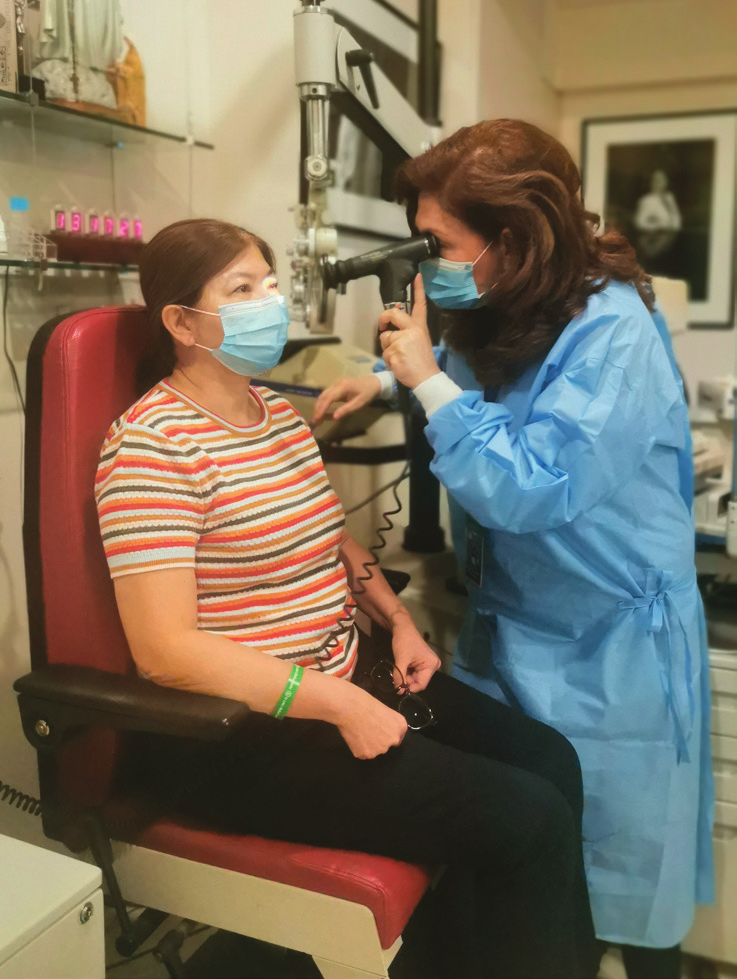
It is the same problematic IT system that can allow premium payments to appear on record to have entered the PHIC treasury but are actually diverted to other accounts. The 2019 committee of the whole Senate hearing briefly touched on a finding of premium funds entering bank accounts of Philhealth employees. But this was not pursued.
Lack of coordination
Then there is the lack of coordination with the Philippine Statistics Authority (PSA) which has caused the continuous payment of premiums for elderly deceased persons by the DBM. And this amount is not small.
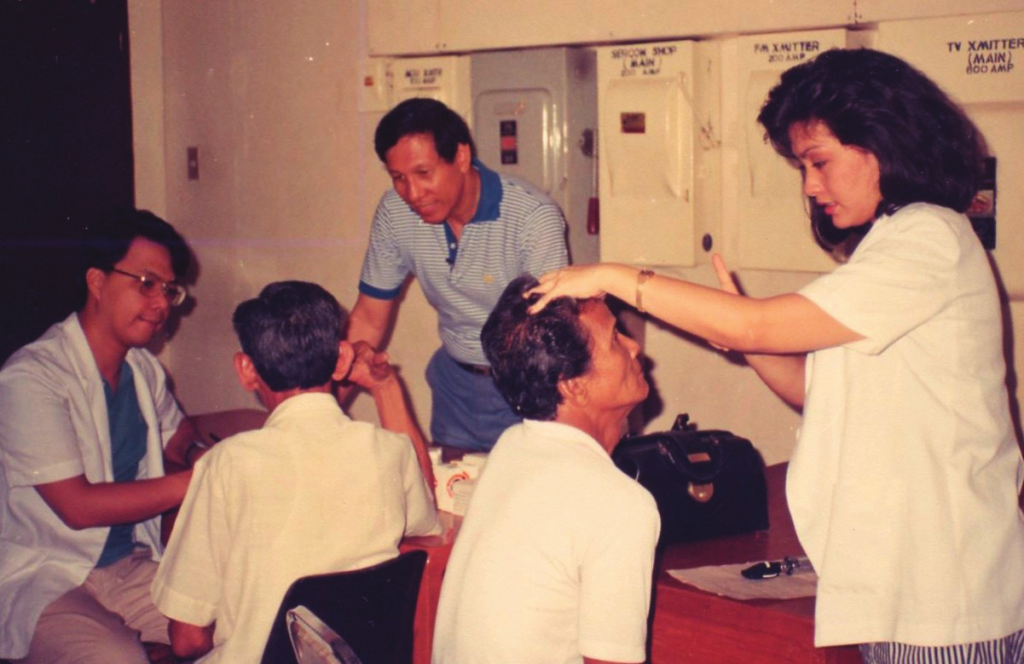
The recent 2021 COA report that studied data from only 1% of Philhealth hospitals showed that 8,156 deceased elderly persons were still in the PHIC data base. If you extrapolate this and multiply by 100 and at P5,000 per year per senior, then this translates to around P4.078 billion in premiums needlessly paid by the DBM for deceased individuals.
It is the same lack of data and that has allowed unscrupulous dialysis centers in conspiracy with some unsavory Philhealth officers to keep claiming for services rendered to persons who had already passed away.
The lack of coordination with the Professional Regulations Commission (PRC) is among the reasons for the very poor premium collection from professionals and the self-employed.
While we physicians are a “captive” group of professionals, paying premiums three years in advance in order to be assured of continuous accreditation as healthcare providers; and while premiums from salaries of employed personnel are deducted monthly, the collection of PHIC premiums from professionals and other self-employed persons is dismal.
MOAs with both the PSA and PRC have been pushed by reformists for many years, but to no avail. Why PHIC has been resisting such common- sense solutions is beyond comprehension.
Then there is the powerful but extremely inefficient legal division of Philhealth that has been known to have received a grade for “0 from the Governance Commission for GOCC (GCG) because of its failure to resolve cases. PHIC is a quasi-judicial organization that investigates, prosecutes, adjudicates and executes decisions against healthcare providers as well as their own people.
While extortion was not the intention of those who crafted the PHIC law, it is what such a system has bred. Hence the undecided cases and the continuation of abuses on the part of healthcare providers as well as sacred cows within PHIC itself.
Sacred cows
These sacred cows are protected by powerful politicians who still view healthcare in terms of patronage and PHIC as a political tool instead of an institution meant to serve all.
To quote from my essay in the PDI:
“Corruption; a porous, fragmented IT system that allows anomalies to thrive; an inefficient yet all-powerful legal division where extortion can flourish; the lack of accountability of certain ‘sacred cows’ within the corporation; blatant pressure from some powerful politicians who still think of health as patronage and who look at PHIC as their political tool rather than a means to serve all; incompetence and a lack of understanding of the nuances of social health insurance among many appointed persons; these are only some of the problems that hound PHIC. These have gotten worse; causing many good and competent people inside PHIC to leave.
The next administration must be ready to address the PHIC problems head on. The executive department must ensure the wheels of justice turn swiftly to resolve cases of graft and corruption filed with the Ombudsman and Sandiganbayan.
Both the UHC Act and the Philhealth Act have to be revisited. Should PHIC remain an attached agency of the DOH or should it be transferred to the DOF and the Insurance Commission? Should we demand that the IT system of PHIC be audited randomly twice a year by an independent and reputable private company in order to ensure transparency?
Should the legal and premium collection divisions of PHIC be outsourced so that PHIC can concentrated on health packages, validation of claims and payment of reimbursements? Should PHIC just be abolished and replaced?
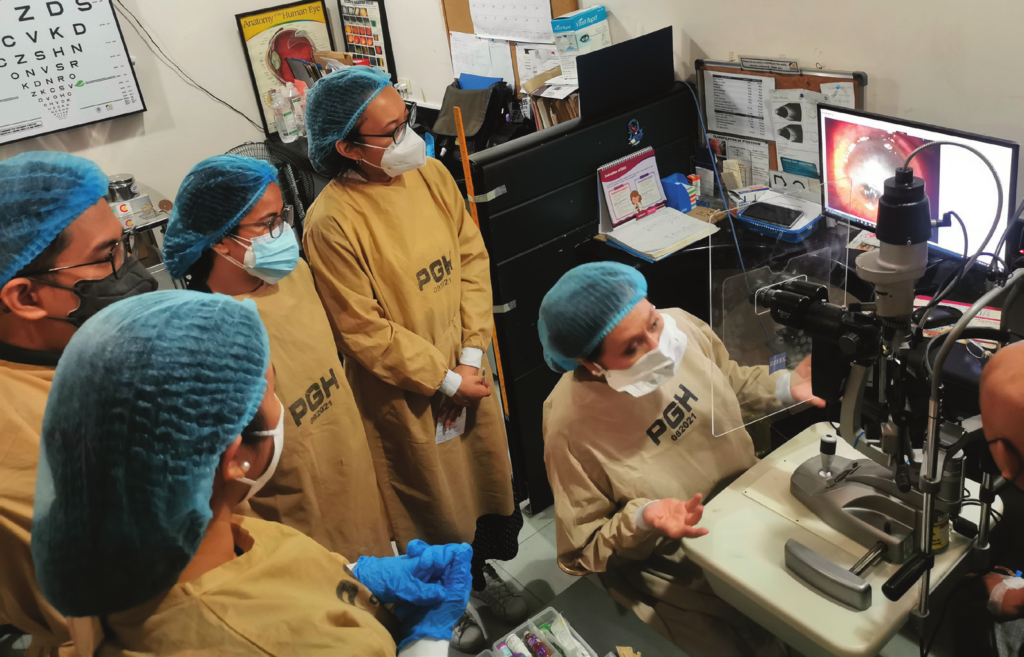
The original version of the UHC bill filed in the House called for the abolition of the PHIC and the creation of a Philippine Health Security Corporation. This was deemed the best way to remove the undesirable persons within the corporation, keep the good ones, and start fresh. But by the time it was to be defended on the floor, this provision was removed.
These are just some of the questions the next administration will have to deal with post-haste.
Not yet done with COVID
We are not yet done with the COVID-19 pandemic. Stronger and more frequent typhoons brought about by climate change, many communicable ailments and a growing incidence of lifestyle diseases will require an efficient healthcare system especially for those who are most vulnerable.
We need UHC. But for UHC to happen, we need a good national health insurance system. Competence, integrity and a strong political will among our leaders are necessary to address the PHIC conundrum, for all our sakes.”
For the above-mentioned reasons, and more, I hope to continue my advocacy to improve healthcare delivery through reform and better governance in Philhealth and the DOH should be given the chance to sit in the senate.
It sounds like that Philhealth, DOH and UHC may take all of your time. Can you also expound on your other priority measures?
Yes the health issues is formidable. And what makes them more difficult to solve is the runaway corruption that has been allowed to damage our healthcare delivery system; as it has also affected all aspects of government. Too many personal interests have been put before public welfare. So corruption is something we need to address. But let me get back to that later.
Mental health of our youth, especially as it relates to the dangers of internet use, is something I want to address. I have been going around the country; and among the common things I have been hearing from our youth is about how depression is more rampant among them; so much so that they are led to self-destructive behavior; the worse being suicide.
Even teachers have told me that there are more incidences of suicide among their students since the pandemic and lockdown happened.
Atmosphere of fear
Imagine being a young person during this last two years. You are living in an atmosphere of fear. You cannot be with your friends or do things that are important to a young person, be they pre-teens or teens.
You keep hearing about relatives and friends who are dying. Perhaps the breadwinner in the family lost his or her job and life is so uncertain. Your life is practically limited to the virtual world where fake news and fantasy abound; where everyone on Instagram seems to be richer, happier, thinner, handsomer or prettier than you.
Then add to this the bullying, the body shaming, the predators, the identity theft, and other crimes that lurk in the internet; and it is no wonder so many of our youth are depressed and lost. The internet is here to stay. It will be an even greater part of our lives in years to come.
We need to ensure that all of us, our youth especially, are armed with the skills and knowledge needed to use it safely. We may have the cyber crime law. But if we arm our youth with the skills to protect themselves from the dangers of the internet, they will be less likely to fall prey to cyber crimes. The DepEd will need to pray an important role here.
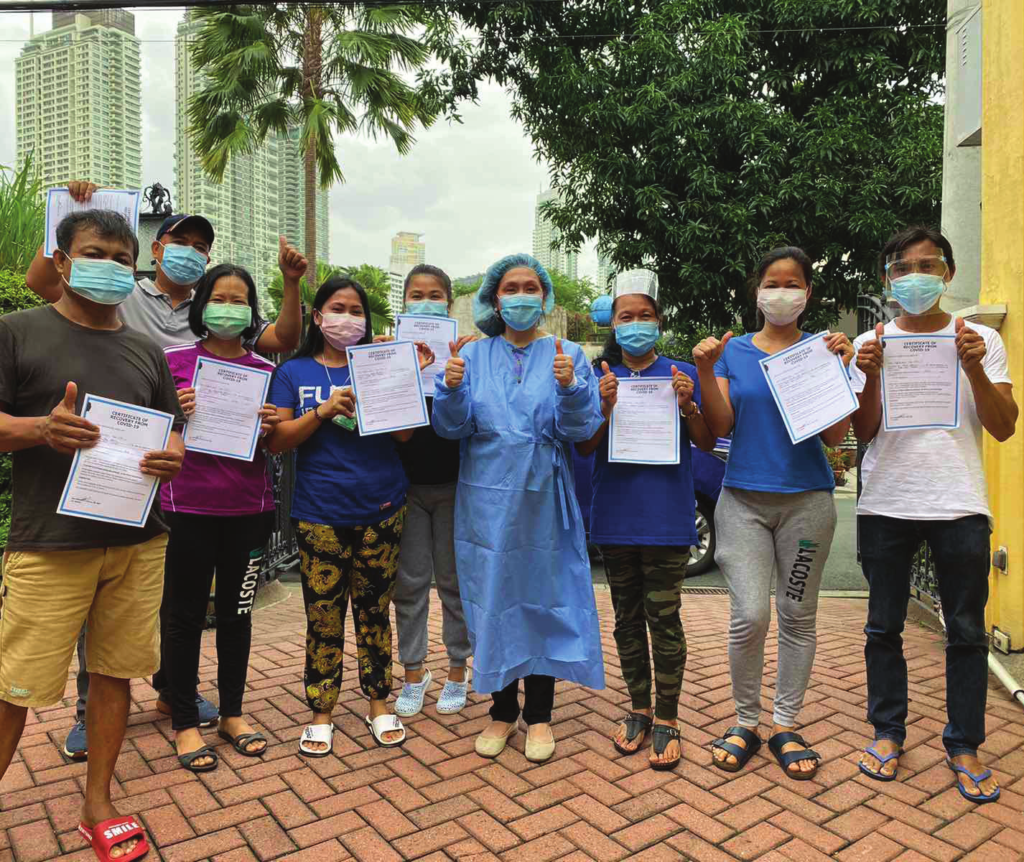
You are going to look into the welfare of our farmers and fisherfolk. How will you do that?
Food security is a very important aspect of national security. Without food security, a nation is vulnerable.
Food and water, or the lack of it, can spark wars. Food supply from importation is not the same as food security. But important is rampant because of greed. We are in danger of losing our farmers because we have not treated them properly.
We have been in dialogue with farmers from Benguet to Davao de Norte. And we feel their pain.
But there is a solution. One good model we have seen is the model in Davao del Norte where the local government purchases 100% of the produce of the local farmers at a price that is fair to the farmers.
It is the LGU that sells the produce to the markers at a 2% profit. Because of this, everyone is happy. The farmers lives have improved, and consumers don’t have to pay very high prices for the produce.
We cannot expect to buy 100% of the produce of our farmers nationally. But 50% is enough to make them happy and help them prosper, and not cause a rebellion among our businessmen. We also need to curb smuggling. This is economic sabotage.
We have RA 7607 that is meant to empower smallhold farmers. But much of it is not being implemented properly. This is partly because of incomplete devolution.
While the Local Government Act of 1991 devolved some functions of the national government to the LGUs, among them health and agriculture, the money was not devolved.
Thus a lot of the provisions of RA 7607 the law are not being implemented. This needs to be revisited as well. Now that the Mandanas ruling of the Supreme Court is in effect, we can also expect more funds for LGUs.
One of the centerpieces of our party’s platform is called BRAVE (Budget Reform Agenda for Village Empowerment). It has been discussed extensively by Senators Ping Lacson and Senate President Tito Sotto, our presidential and vice presidential candidates.
Aside from LGUs being given the benefit of consultation before local projects are funded, they will also be given increased funding every year; as much as 1 billion per province, 100 million per municipality and 5 million per barangay.
This is in addition to the increased funding from the Mandanas ruling. This should enable them to fund projects that they really need; bring about economic progress, and decongest the over-crowded cities. But this increased funding must come with an equal degree of increased accountability.
As to the fisherfolk, we need to protect our sovereign seas so that our fisherfolk are not deprived of fishing in our own waters. By protecting our sovereignty we will also protect our coral reefs and the ecology of our waters so that our fish population will not be depleted. We need to increase fishing ports and also provide canneries near the fishing ports so that the fisherfolk can make more out of their catch.
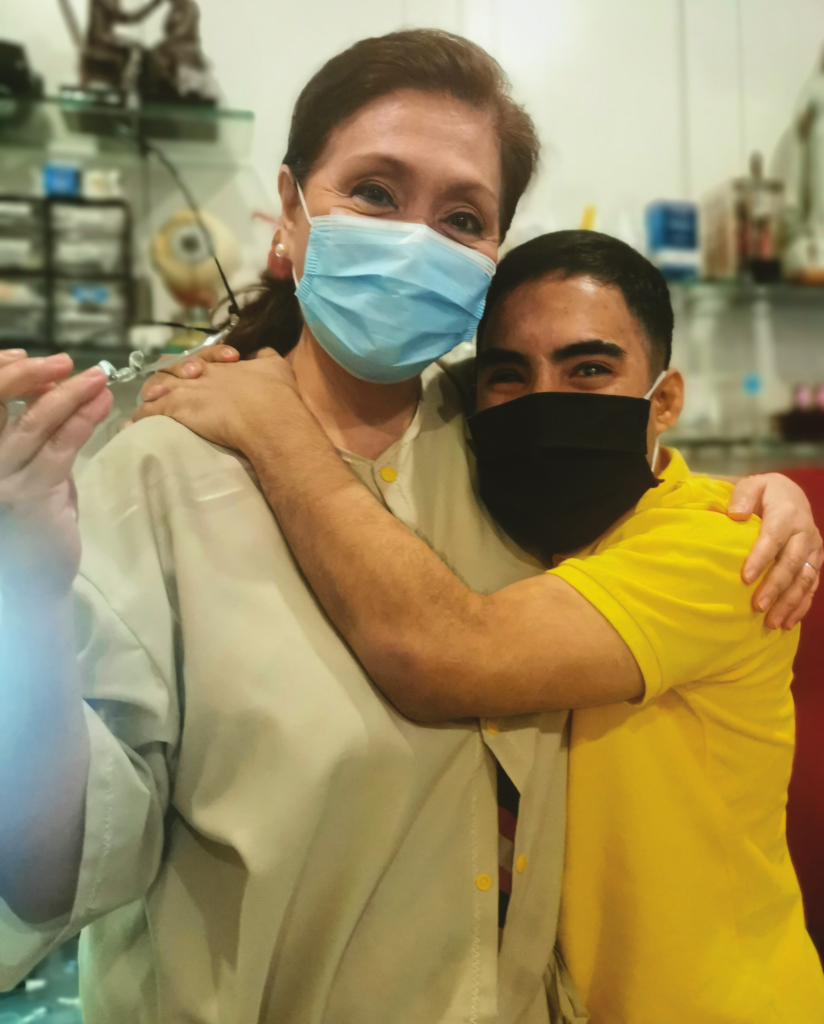
For both the farmers and the fisherfolk we need to give them opportunities to learn better fishing and farming in order to improve their earning capacity and their knowledge on how to farm and fish without damaging the environment.
So these are all related: Protecting the welfare of farmers, fisherfolk, the environment; food security and national security.
There are many more possible laws and policies I can discuss, but I think I’ve take too much of your time already.
You said you wanted to say something about corruption?
Yes.. Corruption is the common, rotten thread that binds so many of the ills of our country together.
If we can only curb corruption, around 60% of the country’s problems will be solved.
But to do this we need strong, competent, honest leadership; especially at the very top.
There is no substitute for leadership by example. We can pass the best laws; undertake the most rigid investigations in aid of legislation; file airtight cases against corrupt people both inside and outside government.
But if the executive branch of government does not do its part; we will not be able to free ourselves from the quagmire our country is in.
READ FULL ARTICLE HERE:
